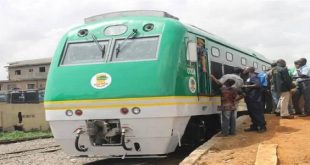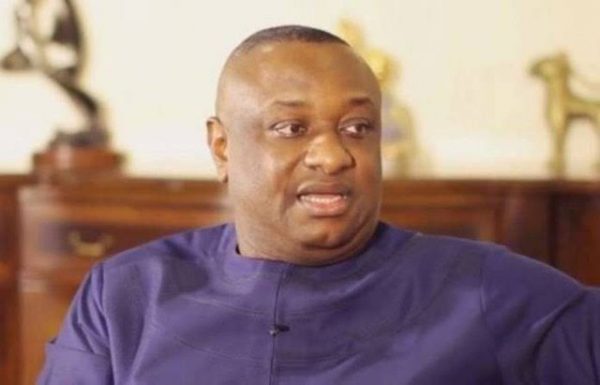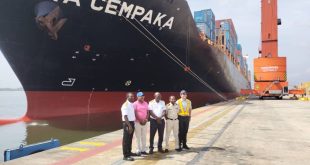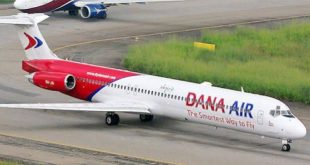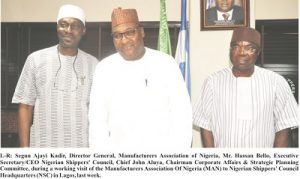 *Seeks regulatory powers for Shippers’ Council
*Seeks regulatory powers for Shippers’ Council
*Niger Imports 15 refinery equipment containers through Lagos Port

The Manufacturers Association of Nigeria(MAN) has called on the Federal Government to see the task of reducing the cost of doing business at the nation’s ports as a critical component in its Economic Recovery and Growth Plan(ERGP) initiative unveiled on Wednesday last week by President Mohammadu Buhari in Abuja.
Observing that the plan is in the right direction to help see the economy through the prevailing economic recession, it demanded that the Nigerian Shippers’ Council(NSC) be supported with enabling legislation to perform optimally as the port economic regulator, saying the nation could not have desired a better regulated port environment than now that businesses are expressing excruciating pains as a result of the biting recession.

Speaking during a working visit to the Nigerian Shippers’ Council(NSC) on Friday last week, the Director General of MAN, Mr. Segun Ajayi-Kadir, averred that the Federal Government’s economic recovery blue-print can not be said to be holistic if the strategies of encouraging business growth through reduction in cost of doing business at the ports are not included.

Saying that the government must ensure that the carelessness that gave birth to the prevailing recession must not be repeated in finding solutions to it because it could worsen the situation, Mr. Ajayi-Kadir added,” “We cannot be operating in an environment that is not regulated” and further called for a strategic partnership with the NSC for a structured engagement on issues of national importance.
MAN observed that despite a series of complaints and engagements with the relevant government agencies and ministries, the terminal handling charges in Nigeria’s ports still remain relatively high when compared with neighbouring ports in West and Central African region, it therefore reminded the government that the Nigeria’s ports are uncompetitive and cannot attract patronage, irrespective of how patriotic a business man wants to be.
In his submission consequently, one of the Council members of MAN, Chief John Aluya said “ We need a port economic regulator, otherwise the port will be in a mess. We applaud NSC for all its strides in the maritime industry and MAN will be willing to support you to ensure that we have a port regulated environment.”
“MAN would like to be a part of the transport logistics plan in progress because when the cost of transportation is high the cost of product will be high. The Inland Container Depots(ICDs) will bring down the cost of doing business lower to our members . Equally, we applaud the Truck Transit Park(TTP) initiative with 8 locations. We want to have them as soon as possible but we must emphasis that NSC needs a good legal framework to work better.”
Earlier, in his presentation, the Executive Secretary and Chief Executive of NSC, Barr. Hassan Bello emphasized that one of the Council’s goals is to reduce the cost of transportation and port charges through competition not by fixing prices, adding that Nigeria cannot attain the hub port status by fiat as there is competition among the ports in the West and Central African region. “We cannot declare a hub status, we have to work and earn it. There is nothing like cargo diversion, it is a calculated decision. The cost of doing business in Nigeria’s port is still high and that explain why cargo owners route their cargoes to other competitive neigbouring ports around.”
While ensuring that consumers of port services get competitive offerings, he said NSC would not take delight in seeing terminal operators and shipping companies operating at a loss because they have invested so much financially in the economy, adding:” NSC will not be seen as having done its works well when the terminal operators and shipping companies are not making profit”.
Bello explained that the Council is facilitating the establishment of numerous transport infrastructure in the country so as to help bridge the infrastructure deficit in the sector, as he further called on the government to fix the port access roads as an obligation to the port users.
Some of the infrastructure are: Truck Transit Parks(TTPs), Inland Container Depots(ICDs), among others.
Meanwhile, NSC and the Nigerian Ports Authority(NPA) and the Nigeria Customs Service(NCS) have began discussions with the authorities of landlocked countries of Chad, Niger and Mali, among others to commence transit trade using Nigeria’s corridors.
Speaking with MMS Plus on the development, the CEO of NSC, said the talks have started yielding fruits as some trial imports have been done successfully to Chad, adding that 15 containers of oil refinery accessories meant for Niger are being expected through Nigeria’s transit corridor .
The shipment being expected from an undisclosed destination will be received and treated at APM Terminals, which has a train logistics services from Lagos to Kano.
 MMS PLUS NG – Maritime, Aviation, Business, Oil and Gas News Online Newspaper with coverage in Maritime, Oil and Gas, Aviation, Power and Energy as well as Financial News
MMS PLUS NG – Maritime, Aviation, Business, Oil and Gas News Online Newspaper with coverage in Maritime, Oil and Gas, Aviation, Power and Energy as well as Financial News



